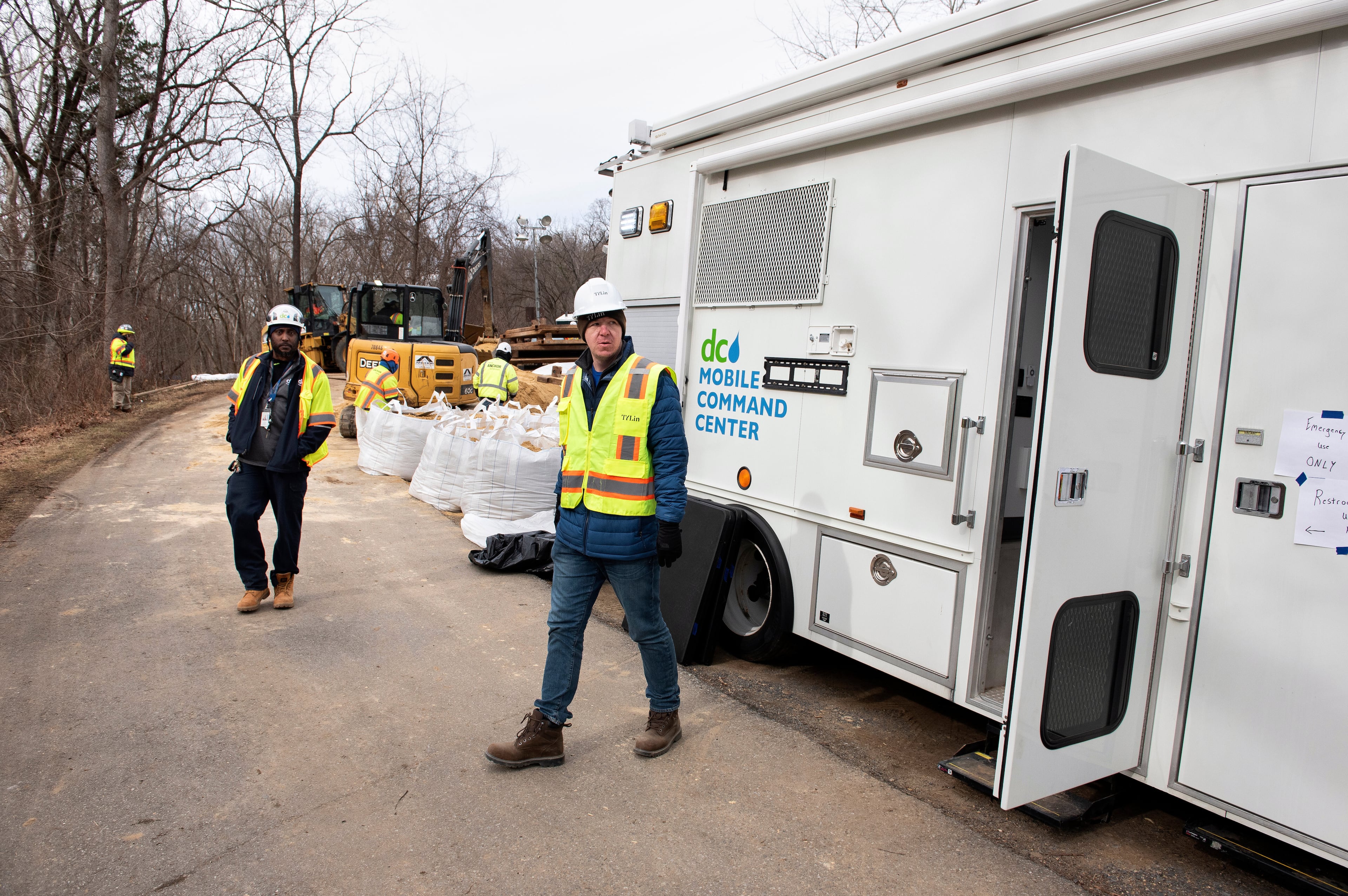Old pipes, tight spaces: Why Atlanta water repairs are taking so long

The intersection at Joseph E. Boone Boulevard near J.P. Brawley Drive became one of the most important cross-streets in all of Atlanta over the weekend.
It’s the point where three major water lines converge, serving a large part of the city. And it’s where a 48-inch line and a 36-inch transmission line burst Friday morning, and the subsequent repair has left many Atlantans without water or with very low pressure from their taps.
Follow updates on the repairs and the boil water advisory on ajc.com
So, what happened and why are people still having to boil water? Essentially, the city is working on old pipes laid out in an old design, said Al Wiggins, Jr., commissioner of the Department of Watershed Management (DWM). And, after the pipes are repaired, the water must be tested by the state Environmental Protection Division to make sure it has no sediment or toxic chemicals.
The pipes that burst were made out of steel and more than 80 years old, Wiggins said at a press conference Saturday afternoon. He said he did not know when they were last replaced but said there had been other watershed work in the area in 2019.

How the pipes were fitted together was not the most “efficient alignment” Wiggins said. “Therefore, there was a leak that occurred that caused corrosion of that pipe.”
Getting access to the pipes for repairs has also been difficult because of the design and tight space.
“Because of that strict confinement, it makes it really difficult to get the proper alignment with these pipes,” Wiggins said. “These are large pipes, and it requires one person to be in the manhole working during that time, and so there is a significant degree of complexity.”
Aging pipes plague many American cities, and many choose to replace them in phases because of the expense and time it takes to do the work, according to a 2023 study by Utah State University professor Steven L. Barfuss. The study also states that the American Society of Civil Engineers gave water infrastructure in the U.S. a C-minus grade in 2021. Barfuss stated in his 2023 study that 20% of water pipes need to be replaced, to the tune of $452 billion.
About 20 years ago, then-Mayor Shirley Franklin began implementing a plan to update Atlanta’s sewer, water and storm water systems. She said the current problems the city is facing were unsurprising.
“Given the age of the system and generally the lack of investment over 60 plus years and the likely increased demand, the continued need for investment and attention isn’t surprising,” Franklin told The Atlanta Journal-Constitution.
Atlantans seem to recognize the challenge. Earlier this month Atlanta voters backed the longstanding one-percent sales tax that funds water and sewer projects for another four years. The renewed tax is estimated to collect roughly $1.1 billion over the next four years. It will take effect in October and extend through September 2028.
The lines at Boone and Brawley were not the only ones to break Friday and Saturday in Atlanta. Repairs are ongoing on pipes at the intersection of West Peachtree Street and 11th Street in midtown, which Mayor Andre Dickens called a “major break.” In addition, the city announced Sunday afternoon two more breaks.
But it’s the pipes under Boone Boulevard that have caused most of the ongoing issues because the three lines that intersect there had to be shut off for repairs to take place, Dickens said.
It’s unclear how many residents have been left without water because some locations on a line might have multiple businesses. There are no defined geographical boundaries because different areas of the city are served by the pipes, Wiggins said. The DWM provides water to more than 1.2 million people, the division says on its website under “Fun Facts.”
Atlanta has about 3,000 linear miles of pipes and the DWM is “continuously replacing aging pipes,” according to Wiggins. But the area at Boone and Brawley was not previously slated for repairs because the department hadn’t collected any information that indicated it needed to do major work, he said.
The crews that are repairing those pipes are now creating a different configuration to prevent such a major disruption to the city again.
But in the meantime, many Atlanta residents have had to turn to bottled water or stay with relatives in other cities just to have a flushing toilet or to safely brush their teeth. The Atlanta fire department has provided port-a-potties and bottled water at four fire stations. Code enforcement officers are making regular rounds to the downtown hotels and businesses that were impacted as well as checking on senior citizens according to Atlanta Fire Chief Roderick Smith.

“We’re also making rounds to the local hospitals, those critical areas with chillers that may need assistance with us providing water or assisting them in cooling down operations in data centers,” Smith said.
And it’s not just residents and businesses that have been affected. Some police precincts and the 911 center are in areas without water, and the Atlanta Police Department has had to deliver water, food and supplemental restrooms to those locations, APD Chief Darin Schierbaum said. Police recruits were also canvassing senior citizen high-rises and other areas of the city to ensure they had what they needed from the city.
The Atlanta Journal-Constitution and Report for America are partnering to add more journalists to cover topics important to our community. Please help us fund this important work here.



